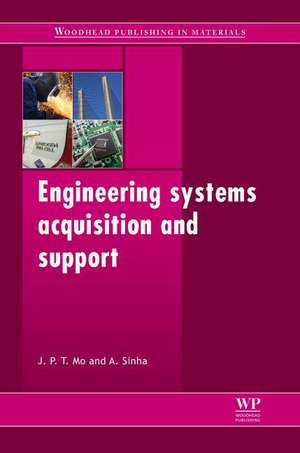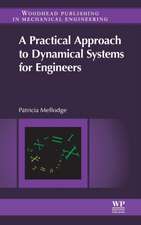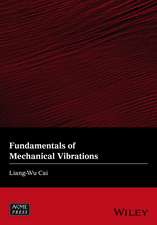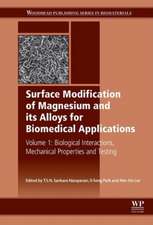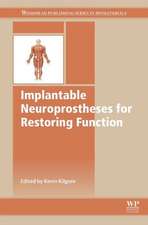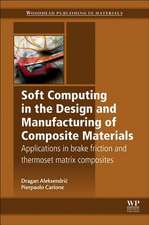Engineering Systems Acquisition and Support
Autor J P T Mo, A Sinhaen Limba Engleză Hardback – 10 dec 2014
- Creates a new operational view of modern acquisition, design, services and support systems
- Applies enterprise modelling and analysis techniques to develop a whole systems view
- Takes the systems engineering approach to services system design and support
Preț: 749.43 lei
Preț vechi: 936.79 lei
-20% Nou
Puncte Express: 1124
Preț estimativ în valută:
143.42€ • 149.18$ • 118.40£
143.42€ • 149.18$ • 118.40£
Carte tipărită la comandă
Livrare economică 07-21 aprilie
Preluare comenzi: 021 569.72.76
Specificații
ISBN-13: 9780857092120
ISBN-10: 085709212X
Pagini: 244
Dimensiuni: 152 x 229 x 18 mm
Greutate: 0.52 kg
Ediția:New.
Editura: ELSEVIER SCIENCE
ISBN-10: 085709212X
Pagini: 244
Dimensiuni: 152 x 229 x 18 mm
Greutate: 0.52 kg
Ediția:New.
Editura: ELSEVIER SCIENCE
Cuprins
- Biography
- Preface
- 1: Introduction
- Abstract
- 1.1. A new business environment for complex engineering systems
- 1.2. Examples of complex engineering systems
- 1.3. Value for money
- 1.4. Requirements of logistics for support
- 1.5. Lean support services
- 1.6. Concept of integration
- 1.7. Preparedness
- 2: The life cycles of complex engineering systems
- Abstract
- 2.1. Complex engineering product life cycle
- 2.2. Types of knowledge
- 2.3. Tools and methods requirements
- 2.4. Whole-of-life engineering
- 3: Systems acquisition principles
- Abstract
- 3.1. Systems-engineering approach
- 3.2. User requirements
- 3.3. Requirements analysis
- 3.4. System specification
- 3.5. Tender management
- 4: Systems design
- Abstract
- 4.1. Systems design process
- 4.2. Systems modelling: functional, data, process
- 4.3. Design for sustainability
- 4.4. Tool design
- 4.5. Design verification
- 4.6. Design freeze
- 4.7. Maintenance requirement determination
- 4.8. Reliability-Centred maintenance (RCM)
- 4.9. Certification
- 5: Management of engineering-design changes
- Abstract
- 5.1. In-service phase
- 5.2. In-service engineering support
- 5.3. In-service system safety
- 5.4. COTS-item obsolescence management
- 6: Systems prototyping and testing
- Abstract
- 6.1. Prototyping
- 6.2. Experimental design
- 6.3. Physical testing
- 6.4. Virtual testing
- 7: Operations support and logistics
- Abstract
- 7.1. Process modelling
- 7.2. Vehicle routing
- 7.3. Provisioning and inventory analysis
- 7.4. Remote support technologies
- 8: Systems maintenance and reliability
- Abstract
- 8.1. Types of maintenance
- 8.2. Maintenance of in-service systems
- 8.3. Assessing an inspect-replace plan
- 8.4. Maintenance contract risk assessment
- 9: Mid-life upgrades
- Abstract
- 9.1. Systems upgradability
- 9.2. Data authority
- 9.3. Storage and indexing
- 9.4. Assessment of information
- 9.5. Best time to upgrade
- 9.6. Release to service
- 10: Architecture for designing support systems
- Abstract
- 10.1. Characteristics of enterprise architecture for service systems
- 10.2. Enterprise-modelling methodologies
- 10.3. Systems architecture
- 10.4. Support systems design case studies
- 10.5. Transition management
- 11: Performance and risks analysis
- Abstract
- 11.1. Value and performance in service
- 11.2. Development of performance indicators
- 11.3. Evaluation of contract fulfilment capability
- 11.4. Failure analysis
- 11.5. Contractual risks of in-service assets
- 11.6. In-service risks
- 12: Continuous improvement
- Abstract
- 12.1. The need for continuous improvement
- 12.2. Six-sigma processes
- 12.3. Enterprise transformation modelling
- 13: Final remarks
- Abstract
- 13.1. Intangible assets in support system lifecycle
- Index
